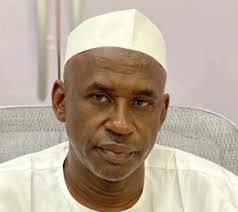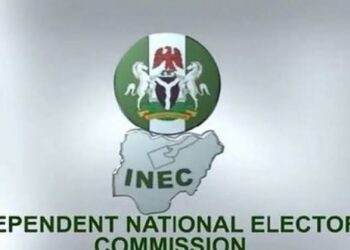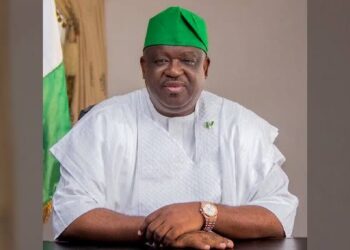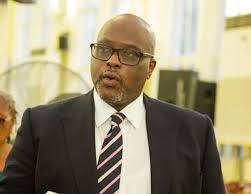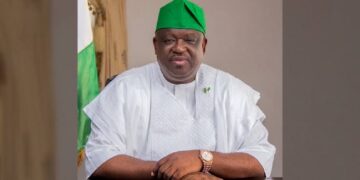In an effort to revive Nigeria’s struggling economy, President Bola Tinubu has unveiled a 2 trillion naira economic stabilization plan.
The plan, aimed at reviving the country’s economy in the next six months, was unveiled on Thursday at the opening of the Presidential Economic Coordination Council (PECC) in Abuja. The PECC, which was established in March, is chaired by President Tinubu. It includes key government officials such as the Vice President, Senate President, and Chairman of the Governors’ Forum, and prominent private sector leaders including Aliko Dangote, Tony Elumelu, and Bismark Rewane serving on the council for a one-year term.
The Tinubu administration has been criticized for economic reforms such as the removal of fuel subsidies and exchange controls without mitigation measures. However, the government remains optimistic that short-term pain will bring long-term gains and attract foreign investment.
At the launch of the PECC, President Tinubu thanked private sector leaders such as Aliko Dangote and Tony Elumelu for their participation, saying, “It is Nigeria that is calling, not a Bola Tinubu. The hopes of the whole country rest on you.”
Tinubu stressed his belief in the power of an organized private sector to drive economic reform and stabilization in the country, saying: “For this country, the necessary reforms and stabilization, we must provide incentives where necessary and let the market control the price mechanism and consumption.” On the immediate economic challenges, the President recalled that he had declared a state of emergency.

He outlined plans to utilize infrastructure development to boost food security, increase oil production, improve electricity generation, and promote agriculture and power supply. “We are facing challenges and we all need to be careful. I believe today is America’s 158th Independence Day, celebrating 25 years of democratic progress. We need to look back on our past performance and look forward to better economic development,” Tinubu said.
He continued, “As President, I can give orders from my office, but I am a deep believer in an organized private sector. This partnership is aimed at stimulating the economy of this country, providing the necessary reforms and stabilization, providing incentives where necessary, and allowing the market to control prices and consumption.”
“Given the energy security challenges, we need to work together to embrace electricity, oil, and gas and improve the supply of our own grid. We are determined to do this with your cooperation, collaboration, and recommendations.”
The President acknowledged the country’s shameful generating capacity of about 4.5 gigawatts and pledged to increase oil production to 2 million barrels per day within the next few months. At the same time, the hurdles for investment in the sector will also be lowered. “It is a great embarrassment for us as a nation to have around 4.5 gigawatts. To become more competitive, we need to increase our oil production to 2 million barrels per day in the coming months and remove all barriers to investment in the sector. We have been given a challenge and we all need to be careful,” Tinubu said.
He assured the council members that, “I am ready to listen to you in all of that. You have seen us from close quarters but we are one. I believe that Mr. Bismarck Rewane will give us further suggestions on what we are missing and what we should do to stabilize this economy.”
The President acknowledged the challenges facing the market, especially on food prices, and expressed his readiness to listen. He will follow the recommendations of private sector leaders to stabilize the economy. Tinubu also highlighted the government’s plans for the Manufacturing Stabilization Fund and support to Micro, Small, and Medium Enterprises (MSMEs), saying: “I just want to thank you for taking this call.” Briefing for State House Correspondents: The Minister of Finance and Deputy Minister of Economy, Wale Edun, explained that the 2 trillion naira policy will prioritize food security, social welfare, energy, and health.
He explained that the PECC is made up of the President’s Economic Management Team, the Legislature represented by the National Assembly leadership, the sub-national level represented by the Chairman of the Nigerian Governors Forum, top economists, and elites of the private sector in Nigeria. Edun said the council members were presented with the findings of the President’s review of the Acceleration, Stabilisation, and Development Plan. He described the plan as a contingency plan covering the next six months following the approval of the 2 trillion naira intervention package.
He explained that the package includes 350 billion naira for health and social welfare, 500 billion naira for agriculture and food security, 500 billion naira for the energy and power sector, and 650 billion naira for general business support.
The Minister added that the intervention is in addition to a series of measures officially announced to reduce the cost of doing business. He further explained that there are other lending measures put in place to reduce interest costs with a focus on supporting certain sectors of the economy, especially small and medium enterprises.
Edun added that the council is made up of top minds and key players in the Nigerian business sector. “In addition to a number of promising tax measures, there are a number of executive orders signed by the President and announced that will reduce the cost of doing business at this extraordinary time.” Various loans are available for certain sectors of the economy, particularly small and medium-sized enterprises, that will reduce interest costs, while there are also loan facilities for larger companies that are below the increased interest rates.”This plan is a measure to stabilize the economy and resume business growth. We know what has happened as a result of the resolute and consistent implementation of necessary micro-economic measures, which have resulted in increased costs for industry and individuals.”
The Finance Minister stressed that President Tinubu is focusing on food security, and food production and placing emphasis on food security. The commitment to provide food at affordable and available quantities is now President Tinubu’s top priority.

Edun further noted the President’s commitment to reduce losses in the crude oil sector and increase crude oil production and sales to 2 million barrels per day.
Chairman of the Heir Holders, Nigerian economist Elumelu, also briefed reporters, saying the president’s target of 2 million barrels of crude oil production per day is achievable. He stressed the importance of improving power generation in Nigeria. “This is about prosperity for our people, economic hope, and creating jobs for our youth. So, with the private sector working with the government, we hope that the situation will improve. That is the objective and the funds that are currently approved for disbursement are only aimed at improving the lives of people.”
The Chairman of the Dangote Foundation, Dangote Foundation, promised to support private sector investment in job creation for Nigerians. He stressed the importance of policy implementation, adding that PECC members are personally well qualified to advise the government on the implementation of appropriate policies.
“The council advises the government on policy implementation. Most of these we have and have discussed many times and I think the selection of members of the committee is sufficient to advise the government on the implementation of policies.”
“The private sector will assist the government to make large investments and create jobs.”
“The government is not creating jobs but they have given us the right policies. You know, the intervention in the gas sector and the commissioning of OB3 will bring another $2 billion to the country.”
“I keep saying our own problems are not that bad. The economy can turn around within a few months and I think we are moving in that direction.”
Other members of the PECC are Vice President Kashim Shettima, Vice-Chairman; President of the Nigerian Senate; Chairman, Nigeria Governors’ Forum; Coordinating Minister for the Economy and Minister of Finance; Governor of the Central Bank of Nigeria; Ministers of Agriculture and Food Security; Aviation and Aerospace Development and Budget and Economic Planning.
The PECC also includes 13 key members of the organized private sector who will join at the direction of the President for a period not exceeding one year and include Alhaji Aliko Dangote, Tony Elumelu, Alhaji Abdulsamad Rabiu, Mr. Amina Maina, Begun Ajayi Kadir, Funke Okpeke and Dr. Doyin Salami. Other PECC members from the private sector include Mr. Patrick Okigbo, Mr. Kola Adesina, Mr. Segun Agbaje, Mr. Chidi Ajayele, Mr. Abdulkadir Aliu and Mr. Rasheed Salmi.



